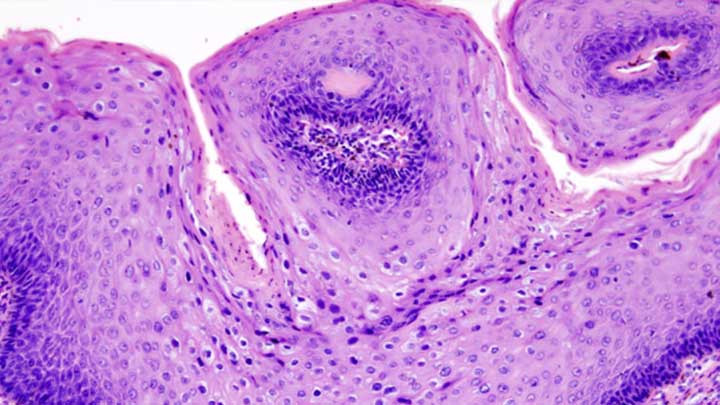
Quick Facts
- Genital warts is a common sexually transmitted virus
- It spreads easily through skin-to-skin contact
- Treatment is only available for genital warts symptoms, there’s no cure.
- There are ways to reduce your risk of getting genital warts
How is Genital Warts transmitted?
Genital warts are growths on the skin of the genital area and around the genital area. They are caused by certain types of the human papilloma virus (HPV). The warts are passed from one person to another by skin-to-skin contact, usually during sex play.
There are more than 100 types of HPV. Some types of HPV produce warts on different parts of the body, like warts on the feet and common hand warts. Some can lead to certain cancers — these are called high-risk types of HPV - and some produce genital warts.
What are the symptoms of Genital Warts?
Common genital warts symptoms are flesh-colored, soft-to-the-touch bumps on the skin that may look like the surface of a cauliflower. They often grow in more than one place and may cluster in large masses. Genital warts usually are painless, but they may itch.
You might see or feel genital warts in your vagina or on your vulva, cervix, penis, anus, or urethra. It is also possible — but not very likely — to have them in your mouth, on the lips, tongue, and palate, or in the throat.
Genital warts usually develop 6 weeks to 6 months after infection. But it may take longer.
They often grow more rapidly if you are pregnant or when a person's immune system is weakened by something like HIV/AIDS, diabetes, or chemotherapy for cancer.
How do you prevent transmitting Genital Warts?
- Abstain from sex or activities that involve skin-to-skin contact.
- If you choose to have vaginal or anal intercourse, use condoms (male or female) every time. They can reduce the risk of genital warts.
- Stop smoking. Smokers may be more likely to develop genital warts than nonsmokers. They are also more likely to have warts recur.
Is there treatment for Genital Warts?
Genital Warts are a virus that lives in your body. Very often our bodies fight off the Genital Warts virus, and the warts will go away on their own. But, because warts are a virus, they will never go away completely. You may experience times when the warts are present, and other times when they are not. If you have the virus, you are able to transmit it to your partner for the rest of your life, although getting treatment for your warts can reduce the possibility that you will pass along the virus to others.
There are several medicines that can be applied directly to genital warts, depending on where they are located. Some prescription genital warts treatments can be used at home. Other treatments must be applied by a healthcare provider at a clinic. [l1] Some genital warts treatments can cause discomfort. And some cannot be used during pregnancy.
If you receive medicines for your warts, do the following:
- Keep the area clean.
- Don't scratch the treated area.
- Wash your hands after touching the warts.
- Avoid sexual contact if it is uncomfortable.
- If you have sex, use condoms to prevent transmitting the warts to your partner
- Apply cold compresses to relieve discomfort, or you may take paracetamol
For most people, the first series of genital warts treatment is successful in removing the warts. But even though the warts go away with treatment, they may return. This is because the treatments can remove the warts, but they don't cure the virus that causes warts.
HPV infection is one of the most common types of STIs. Some forms put women at high risk of cervical cancer. Other forms cause genital warts. HPV usually has no signs or symptoms. The signs and symptoms of genital warts include:
- Small, flesh-colored or gray swellings in your genital area
- Several warts close together that take on a cauliflower shape
- Itching or discomfort in your genital area
- Bleeding with intercourse
Often, however, genital warts cause no symptoms. Genital warts may be as small as 1 millimeter in diameter or may multiply into large clusters.
In women, genital warts can grow on the vulva, the walls of the vagina, the area between the external genitals and the anus, and the cervix. In men, they may occur on the tip or shaft of the penis, the scrotum, or the anus. Genital warts can also develop in the mouth or throat of a person who has had oral sex with an infected person.
